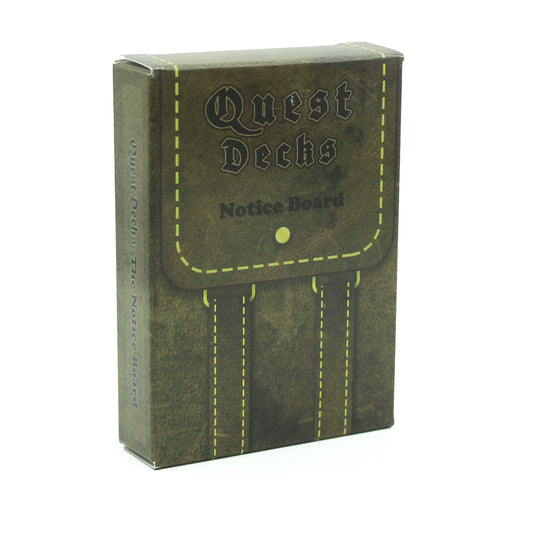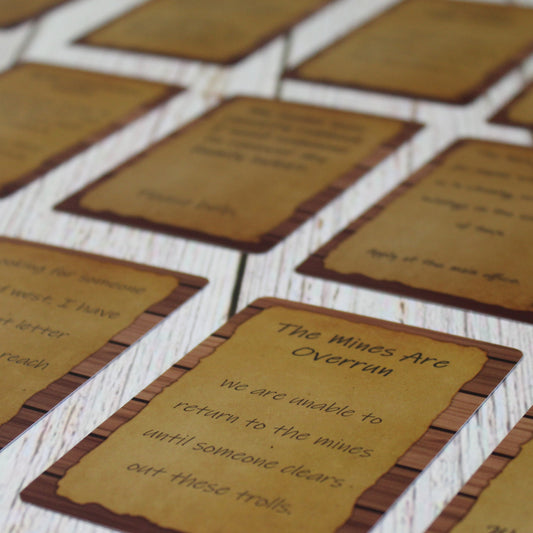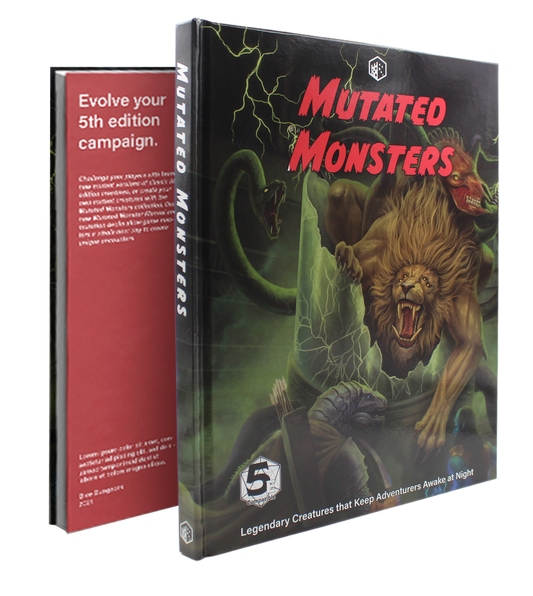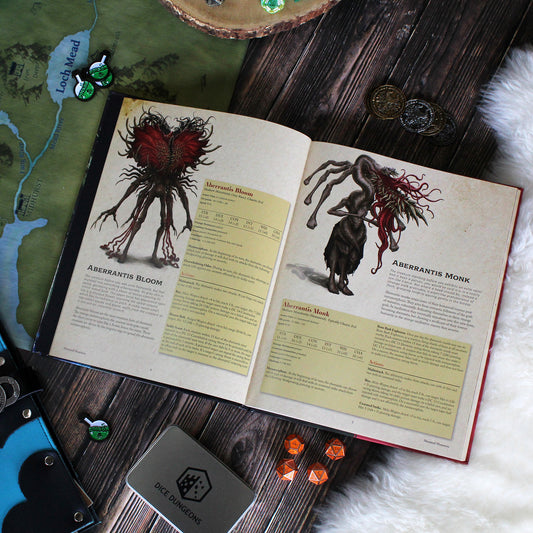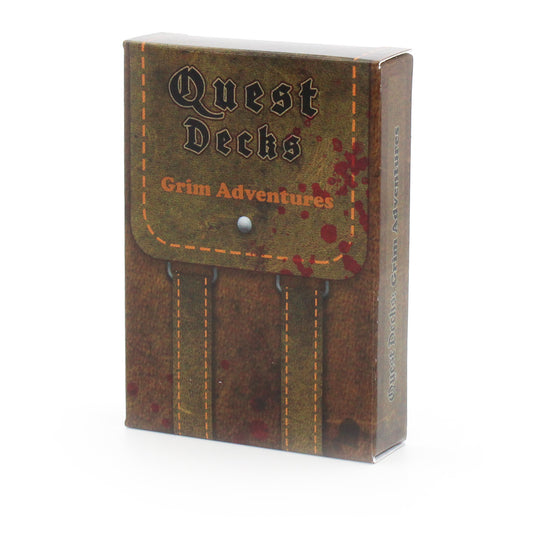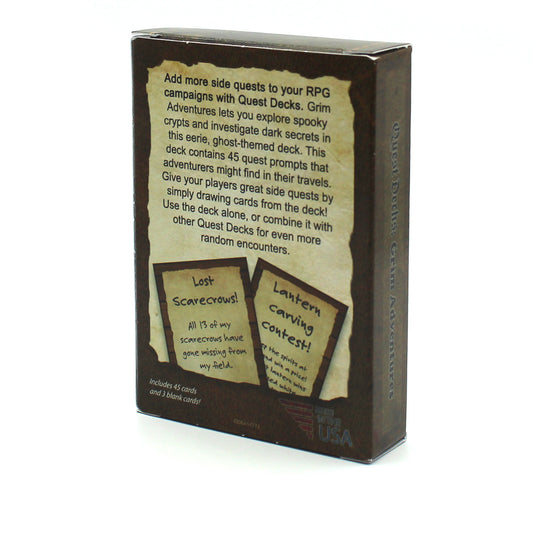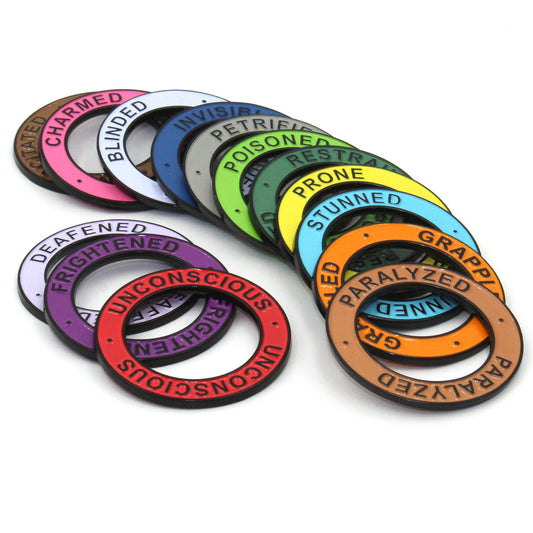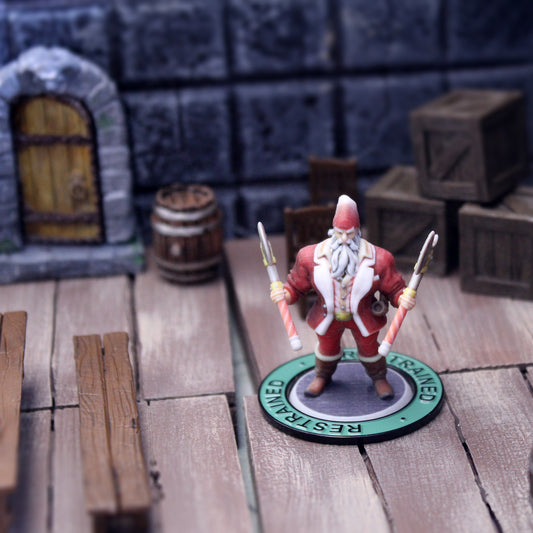The 2024 Dungeons & Dragons Player’s Handbook brings significant changes to spellcasting, introducing adjustments that affect individual spells and alter the spell lists for various classes. The Dice Dungeons team wanted to take a moment to create a comprehensive breakdown of the most notable changes and how they impact each spellcasting class.
Some Major Changes to Individual Spells
Grease: No Longer Flammable
The updated Grease spell has finally put an end to an age-old debate—it's officially nonflammable. This means you can no longer ignite Grease with fire-based spells, making it a simpler spell that focuses solely on creating a slippery area to trip up enemies. It is for battlefield control, not for damage.
Wish: New Limitations and Customization
The most potent spell, Wish, now has added restrictions. For example, attempts to manipulate the multiverse, Sigil, or the Lady of Pain will result in the spell failing (though that change is campaign specific, homebrews are entirely unaffected). There is a fascinating new addition to Wish's listed abilities: the "sudden learning" feature. This casting of Wish allows spellcasters to replace their feats at higher levels, offering greater customization and adaptability.
Giant Insect: Streamlined Summoning
The Giant Insect spell, along with many other summoning spells, has been simplified with a standardized stat block. For Giant Insect you can choose between summoning a giant centipede, spider, or wasp without needing to have bugs on hand. This makes the spell far easier to use without the need for pre-planning. It also makes the spell more user friendly, as players no longer need to be flipping between pages of the Monster Manual (or, more likely, web pages) comparing and contrasting creature stat blocks. The provided stat block does allow for different flavors of insect (there are special abilities for if the charactered summoned a spider or a centipede, for example), but overall the process is much more streamlined.
Aura of Vitality: Free Action Healing
Aura of Vitality has become significantly more powerful in combat. The omission of the phrase "you can use a bonus action" means the healing provided by the spell is now a free action. That means spellcasters can provide more efficient healing without sacrificing other actions during battle. A healer could raised a downed ally with 2d6 HP from Aura of Vitality, and still have an action and bonus action left over to heal others, further boost the hit points of their original target, or attack an enemy. It's an amazing choice for Clerics Druids and Paladins.
Conjure Animals: Spectral Beings
Conjure Animals now summons spectral beings with fixed combat abilities rather than interactive creatures. Similar to Giant Insect this change simplifies the spell's mechanics, however, the utility aspect of summoning different animals has been lost. The new form of the spell behaves more like Spiritual Weapon or Moonbeam in that it creates a moveable, damage-dealing phenomenon. Furthermore, the spells curation reflects this change in intended use (utility to damage), rather than conjuring animal helpers for an hour one summons spectral nature spirits for 10 minutes.
Ray of Sickness: Reliable Poisoning
The Ray of Sickness spell now guarantees that a hit will poison the target, making it a more dependable option for inflicting this condition on your foes. You must still roll the ranged spell attack, but gone is the constitution saving throw foes can make to avoid the poisoned condition.
Sleep: Wisdom Saves Over Hit Points
No longer reliant on hit points, Sleep now requires creatures to make two Wisdom saving throws or fall asleep. Sleep was always an unpredictable spell - the caster gambles they will roll higher than however many hit points an enemy or enemies has remaining. The new version shifts that unpredictability into new arenas. Now casters must gauge the Wisdom of their foes and the chances of multiple failures on a saving throw. The spell behaves similar to the special attacks of some monsters, for instance the petrification abilities of the Medusa and Beholder.
Counterspell: Introducing Saving Throws
This one has been pretty controversial. Counterspell now requires a Constitution saving throw from the target. The new version also lets the caster retain the spell slot used to cast Counterspell should their target succeed on the Constitution saving throw (the Action, Bonus Action, or Reaction used to cast the spell are expended either way). Simlar to the Sleep spell, the revised Counterspell alters where the uncertainty of the spell lies. Instead of considering the level of the spell being interrupted and one's own spellscasting ability modifier, the caster now guesses at their opponent's Constitution save. The change is perhaps meant to reduce the rampant use of Counterspell (certain spell levels no longer automatically fail when faced with a counter), but we at Dice Dungeons are curious to see the change in action. I myself am particularly interested in how it may affect what our table loving refers to as "Counterspell-Conga-Lines." Only time will tell.
Class-Specific Spell List Changes
The updated spell lists include additions, removals, and renamed spells, including options from later sourcebooks like Tasha's Cauldron of Everything and Xanathar's Guide to Everything. Here’s a detailed breakdown of how each class is affected:
Bard
Bards now have access to new spells like Starry Wisp and Yolande's Regal Presence, along with reintroduced favorites such as Color Spray. These changes enhance the Bard's versatility, allowing for even greater adaptability in both combat and utility roles.
Cleric
Clerics see powerful additions with Circle of Power and Power Word Fortify, further enhancing their protective and supportive capabilities. With the inclusion of spells like Aura of Vitality and Summon Celestial, the Cleric’s role as a healer and protector is now more robust than ever.
Druid
Druids gain new cantrips like Elementalism and Starry Wisp, as well as spells such as Fount of Moonlight and Befuddlement. Their spell list remains a versatile one, meant to allow the class to explore the many uses of nature-based magic from healing, to damage, to utility, to crowd-control.
Paladin
Paladins receive Divine Smite as a spell rather than a class feature (though that spell is always prepared due to the class feature). They also gain access to Greater Restoration at level 5.
Ranger
Rangers gain access to spells like Dispel Magic. With the addition of spells such as Summon Beast and Steel Wind Strike, Rangers solidify their position as a martial-spellcasting hybrid, though some may have hoped for more extensive updates.
Sorcerer
Sorcerers welcome cantrips like Elementalist and Sorcerous Burst, along with spells like Arcane Vigor. Despite the disappointment of not gaining spells like Shapechange or True Polymorph, Sorcerers now have more ways to express their elemental prowess.
Warlock
The Warlock’s spell list undergoes significant shifts, with the addition of Bane, Detect Magic, and Jallarzi's Storm of Radiance. These changes have sparked debates, but Warlocks remain a versatile class, albeit with a need to adjust their strategies.
Wizard
Wizards receive a wealth of new spells, such as Circle of Power and Jallarzi's Storm of Radiance, solidifying their status as the ultimate spellcasters. This update further establishes Wizards as the most versatile and powerful magic-wielders in the game.
Final Thoughts
The 2024 Dungeons & Dragons Player’s Handbook has introduced a wealth of changes that will challenge and inspire every spellcasting class. As you adapt to these updates, consider how they might influence your character's strategy and playstyle.
For those looking to enhance their spellcasting experience, Dice Dungeons offers an array of spell effect trackers, dice sets, and more. Whether you’re a Sorcerer unleashing elemental fury or a Cleric providing divine aid, we’ve got the perfect accessories to elevate your adventure.


